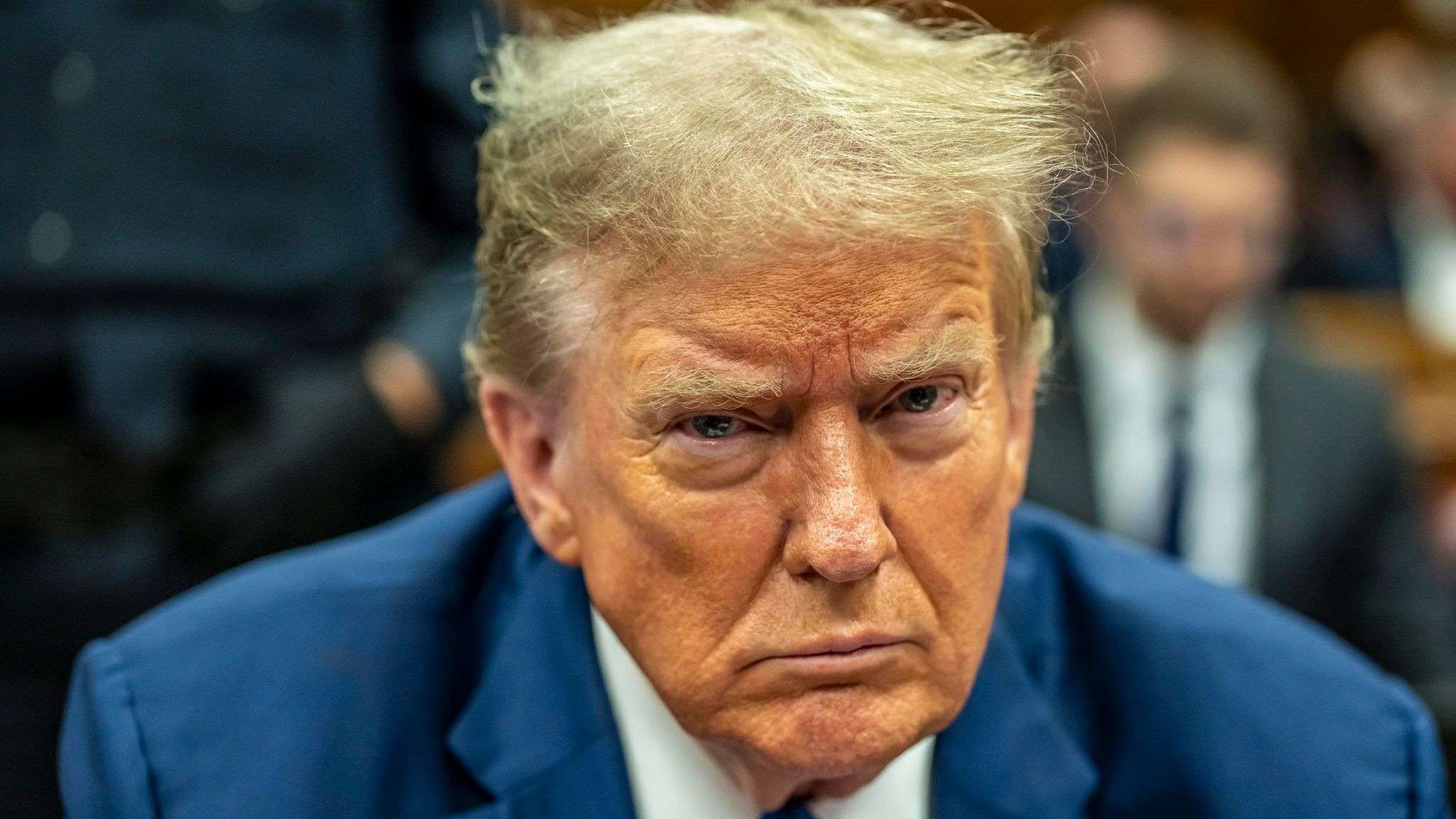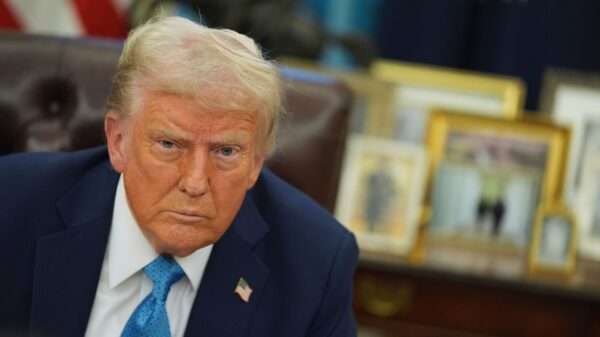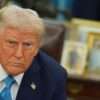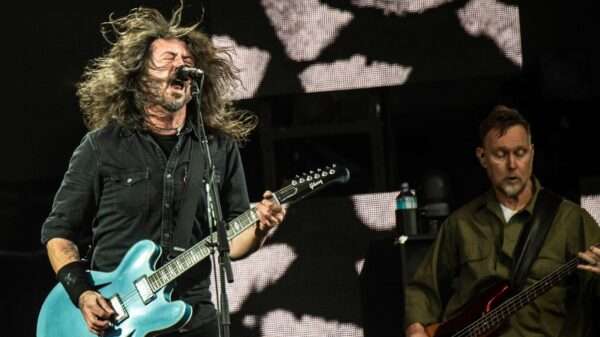Donald Trump has become the first former US president to be criminally convicted.
In a historic decision, a New York jury has found him guilty of falsifying business records to commit election fraud.
He was found guilty of all 34 counts he faced. Unanimity was required for any verdict.
The former president is set to be sentenced on 11 July.
Speaking outside the court, Trump said the conviction was a “disgrace” and that he is “a very innocent man”.
He said the trial was “rigged” and that the judge was “conflicted” and “should never have been allowed to try this case”.
Trump was at the centre of a scheme to cover up “hush money” payments to buy the silence of a porn star in the days before the 2016 election.
When revelations by Stormy Daniels of a sexual liaison with Trump threatened to upend his presidential campaign, he directed his lawyer to pay her $130,000 (£102,000) to keep her quiet.
The payment buried the story, and Trump was later elected to be the 45th president of the United States.
Read more: Can Donald Trump still be president if he’s convicted in hush money trial?
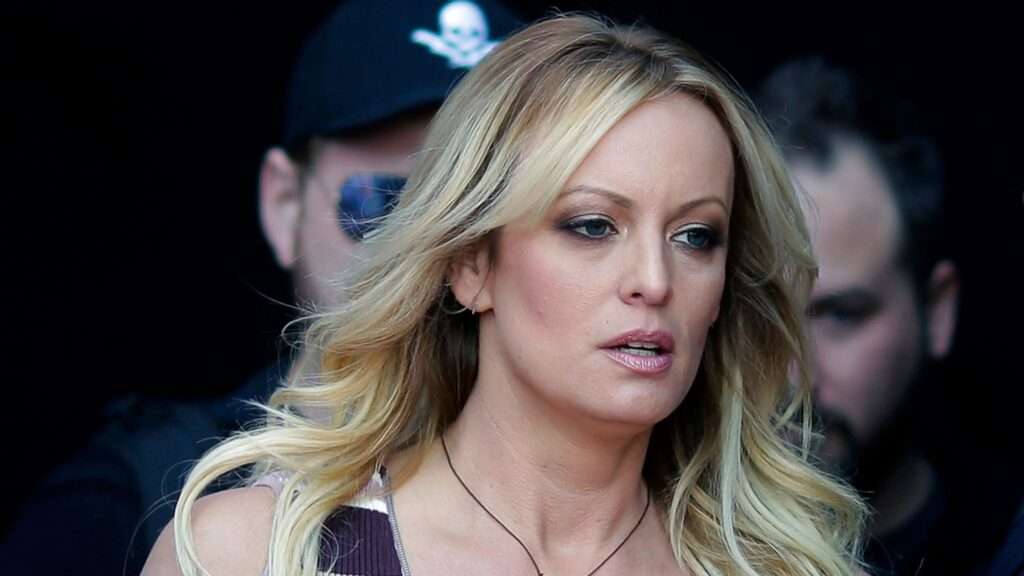
Trump watched the jurors dispassionately as they were polled to confirm the guilty verdict.
The Speaker of the US House of Representatives Mike Johnson said: “Today is a shameful day in American history.”
The trial in the Manhattan Criminal Court heard how the backdrop to the crime was a scandal in the Trump campaign a month before the 2016 election.
A video tape from the TV show Access Hollywood was made public, in which Trump was caught on a microphone talking in lewd terms about groping women (“When you’re a star they let you do it, grab them by the p***y. You can do anything.”)
The trial heard how it was viewed as a “crisis” within Team Trump and that the campaign was soon facing another.
Ms Daniels, an adult film actor, claimed she had a sexual encounter with Trump in Lake Tahoe, Nevada, in 2006.
Fast-forward 10 years and, as he ran for office, she was hawking her story.
The details, as heard in this trial, were that she had met Trump at a golf tournament, and he had invited her to dinner.
She arrived at his hotel suite to find him dressed in satin pyjamas, until she asked him to change.
At one point, he produced a magazine, and she told the court she spanked him “right on the butt”.
Later, she emerged from the bathroom to find him lying on the bed in a T-shirt and boxer shorts, and they ended up having sex.
Trump denies the liaison took place.
‘Catch and kill’
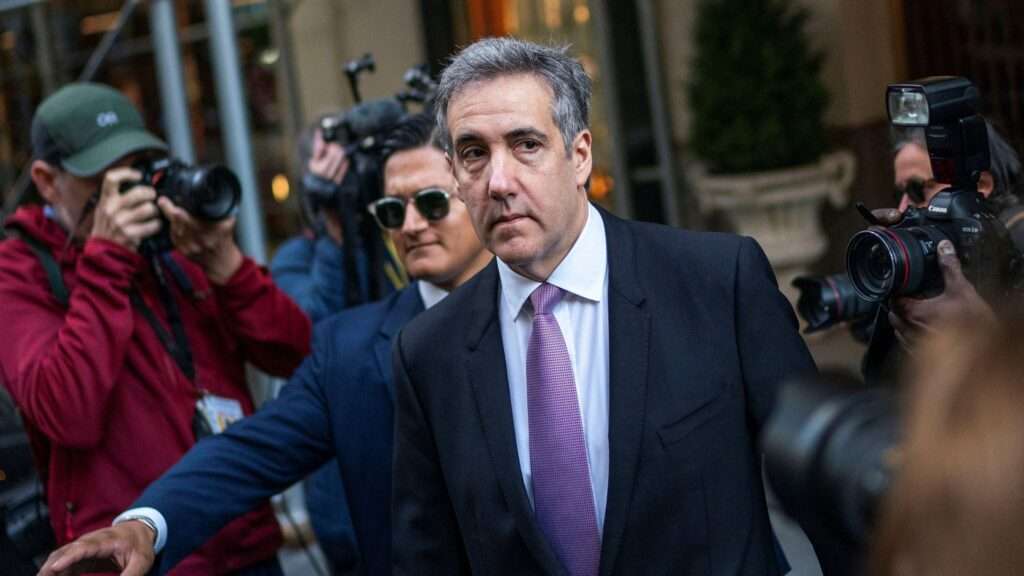
Her plan to sell her story was communicated to Trump by David Pecker, former publisher of the National Enquirer magazine.
He was a friend of Trump and operated a “catch and kill” scheme on his behalf, to catch negative stories and kill them before they could be published.
He’d already paid $150,000 (£117,000) to silence Karen McDougal, a Playboy model with a story of a 10-month affair with Trump.
Trump also denies that affair ever took place.
Mr Pecker told the court he’d attended a meeting at Trump Tower, New York, in August 2015 with Trump and Michael Cohen, Trump’s lawyer and fixer.
At the meeting, Mr Pecker told Trump he’d be his “eyes and ears”.
Michael Cohen testified that, upon learning that Ms Daniels planned to sell her story, Trump told him: “This is a disaster, a total disaster. Women are going to hate me.
“This is really a disaster. Women will hate me. Guys, they think it’s cool. But this is going to be a disaster for the campaign.”
Subsequently, Cohen paid Ms Daniels $130,000 (£102,000) to buy and bury the story.
Critically, he testified that he did so at Trump’s direction, placing the former president at the heart of the conspiracy.
Paying hush money isn’t illegal – the crime was the way in which Trump reimbursed his ‘Mr Fix-It’ and the reason the money was paid.
After Trump was elected president, he repaid Cohen $420,000 (£329,000) which accounted for the $130,000 (£102,000) and other payments and bonuses, “grossed up” to account for tax liability.
The repayment was made in a series of cheques, which were recorded as legal expenses.
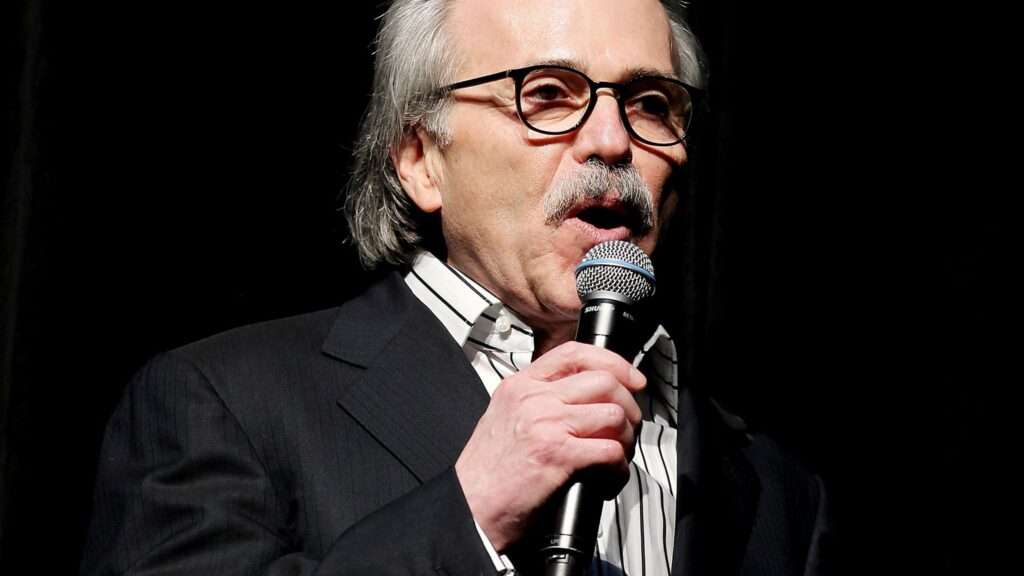
That was the crime – the falsification of business records, aggravated by the reason for it – the effort to conceal from voters a negative story that could have harmed Trump’s election chances.
In the words of the prosecution, it was “a planned, coordinated, long-running conspiracy to influence the 2016 election”.
































